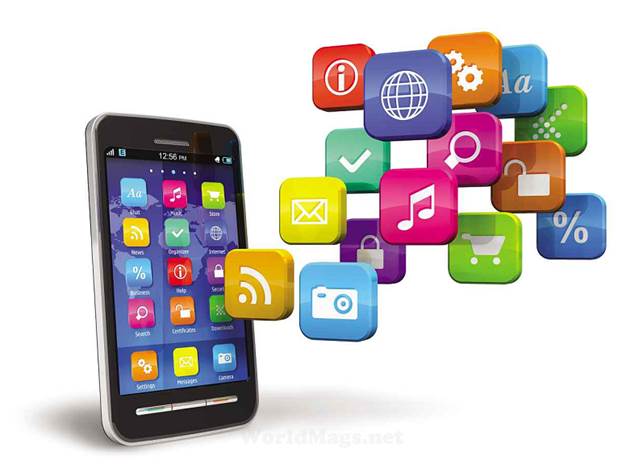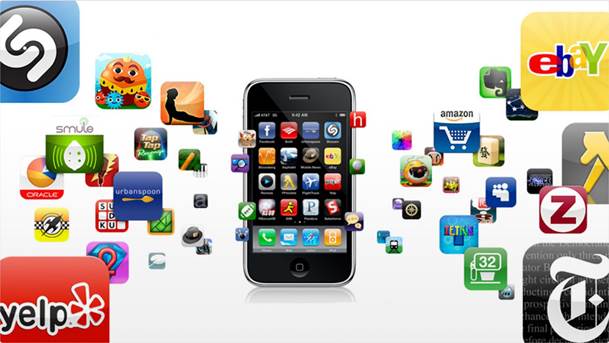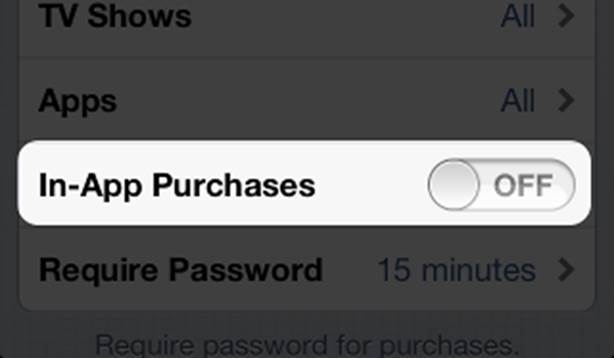Ever get the feeling you’ve been cheated? We
look at the scandalous business of in -app purchases
This year, I switched to the other side.
Yes, I began my inevitable move into all things Apple. Having bought a fourth-gen
iPod Touch a couple of years ago, the Apple TV box then found its way into my
living room, because I wanted a streaming solution for my multimedia content
and, despite there being cheaper options, I succumbed to the lure of the Apple
ecosystem.
“The best part of $64 relating to a title
that purports to be free? No, thank you”

The
Great In-App Purchase Rip-Off
Perhaps the decision to buy the Apple TV
was partly driven by a long-standing wish to snap up an iPad. Initially waiting
for the iPad Mini to finally be announced, the lack of a reveal at the firm’s
September special event (to come later in October, of course) pushed me towards
its fuller, bigger brother.
So, the second-generation iPad was
purchased and I began with haste streaming music and other content purchased
from that to my Apple TV. Bliss. Of course, the iPad is little more than an
expensive paperweight without content, and given that Apple has already taken
away some of its finest apps in the form of YouTube and Google Maps with its
iOS6 update, the need to hit the App Store was even more of a necessity.
It’s a well-established fact that the App
Store contains all manner of cheap and even free apps for your delectation, and
I’m happy to say that my new-found tablet is now stocked to the gills with many
free apps for me to play around with alongside my stored media content.

It’s
a well-established fact that the App Store contains all manner of cheap and
even free apps for your delectation
So why is it that despite being pleased
with my new tablet, delighted with the streaming capabilities and overjoyed
that I have climbed, nay jumped, aboard the good ship Apple with both feet, I
find myself having to wrestle with this nagging feeling somewhere in my brain
of being short-changed? It boils down to one thing: in the world of apps, free
doesn’t always mean free.
To Be Free Or Not To Be Free?
Racing games are regularly promoted in
Apple’s advertising campaigns for the iPad, so I naturally wanted to see what
all the fuss was about in the form of the highly rated CSR Racing, also shown
off at one of Apple’s keynote conferences earlier in the year.
Within minutes I’d deleted it from the
tablet. The game itself is a classic tablet racer, pitting you on the drag
racing circuit, where you must do your utmost to drive your way to the top. It
had a pretty steep difficulty curve, without a doubt. I have no problem with
that; any game that encourages you to master its subtleties in order to fight
your way up the ladder is fine in my book. My issue, however, is that the
difficulty in this particular title revolves around amassing virtual coins in
order to spend wisely on better cars and upgrades in order to progress in any
meaningful manner.
Without these improved cars, you simply
cannot progress beyond a certain point, because you’re out-raced in your basic
garage models by superior virtual opponents with ease. You can collect coins by
winning races but it’s a catch-22 situation, because without the coins to
upgrade your vehicle, you can’t win any races in order to win more coins and
progress further still.
Disabling In-App Purchases In iOS
If you want to stop any potential disasters
with in-app purchases, much like a story on the Apple forum of a poor chap in
Australia who ended up with AUD$1,500 worth of purchases thanks to his little
lad playing around on a previously logged-in game of Tap Zoo, there is a simple
solution for iOS users.
To turn off in-app purchasing altogether,
go to ‘Settings’ > ‘General’ > ‘Enable Restrictions’ and then disable
in-app purchases via the On/Off button.

Disabling
In-App Purchases In iOS
The reality is that in order to get
anywhere with the game and enjoy playing it beyond the 15 minutes of play you
can get through initially before the difficulty becomes insurmountable, you
will have to buy these virtual coins, with real money. Look for CSR Racing on
the App Store and next to the title itself is a list of top in-app purchases
(IAPs), including various apps that will provide performance boosts of varying
types for $3.2 and $4.8, rising to $11 and - no, you’re not reading this
incorrectly - $64. The best part of $64 relating to a title that purports to be
free? No, thank you. As a comment under the most critical omments on CSR Racing
reads, “Complete rip-off.”
There is a cynicism at work here too, which
leaves a nasty taste in the mouth. You are reminded of the various purchases
you can make at all-too regular intervals while playing the game and it’s this
method of near-constant pushing of in-app purchases into the consumer which
makes for an ultimately hollow experience.
“The sad reality is that some titles are
nigh-on unplayable without the in-game content”
The Android platform took longer to adopt
the in-app purchase model, but since Android Market introduced the concept last
year, there are now much the same issues with titles such as EA’s Theme Park in
line for a typical level of ire from consumers. The game itself looks great and
is free to download, but some of the purchases cost staggering amounts. As one
of the comments point out, “Game is great until you want to play it. Then you
have to open your wallet and give them oodles of pennies to buy tickets. Allegedly
you can get 70 free tickets but seemingly that’s a lie. Avoid!” Another
consumer comment at Google Play points to $116 of IAPs, which immediately
turned them away.
These titles are far from alone in treating
consumers in this way, but how on earth can they get away with it? By all
accounts, CSR Racing makes the firm behind it a mammoth $12m a month, so the
company is hardly going to apologise for the practice (it is a business, after
all), but the prices attached to many of these in-game buys is simply
outrageous - predatory, even.
In The Wrong Hands
Perhaps it’s because I’m a father, but I
have an added perspective on in-app purchases. My young daughter is a huge fan
of my iPad. She loves the flashing lights, the colourful images and the
unbridled fun that so many of my downloaded titles provide her with. She also
likes switching the thing on and off and then on again, and before I know it,
she’s on that drag racing track. She’s also just a few misplaced touches away
from having purchased that $64 in-app help and I’m a whisker away from tearing
my hair out.

How
tempting would it be to click ‘Buy Now’ when that in-app message crops up,
offering you the answer to all your in-game problems.
Now, you could argue that I’d only have
myself to blame for letting a three-year-old anywhere near it in the first
place, and perhaps you’d be right. Think about the teenage gamer who gets a
brand new iPad for Christmas, though. The account will invariably be tied up to
mum or dad’s credit card and you have the potential for financial disaster.
You can school your kids in the importance
of spending money all you like, but think of the situation of said teenager
playing a game that all his or her mates do, wanting to gain bragging rights.
How tempting would it be to click ‘Buy Now’ when that in-app message crops up,
offering you the answer to all your in-game problems. We all know how games
suck you in, take up all your free time, and, in the case of many so-called
free apps, actively encourage you to spend, spend, spend to go that little bit
further. To any avid gamer, particularly younger gamers, the temptation will be
great.
What of the more vulnerable gamers too, for
whom addiction means that spending can all too easily get out of control.
Bombarding them with messages that actively encourage them to spend their
salary on a round-the-clock basis is aggressive and irresponsible. In this
respect, are in-app purchases immoral?